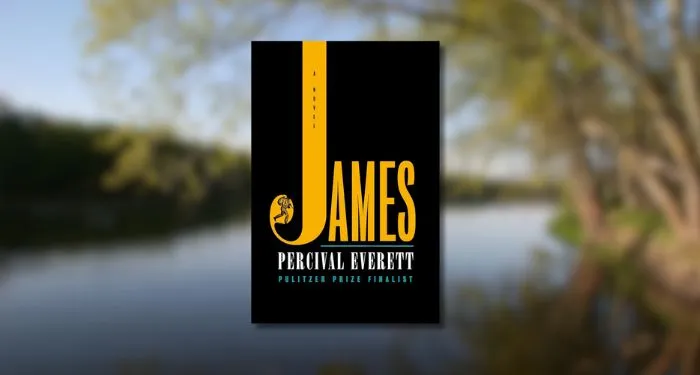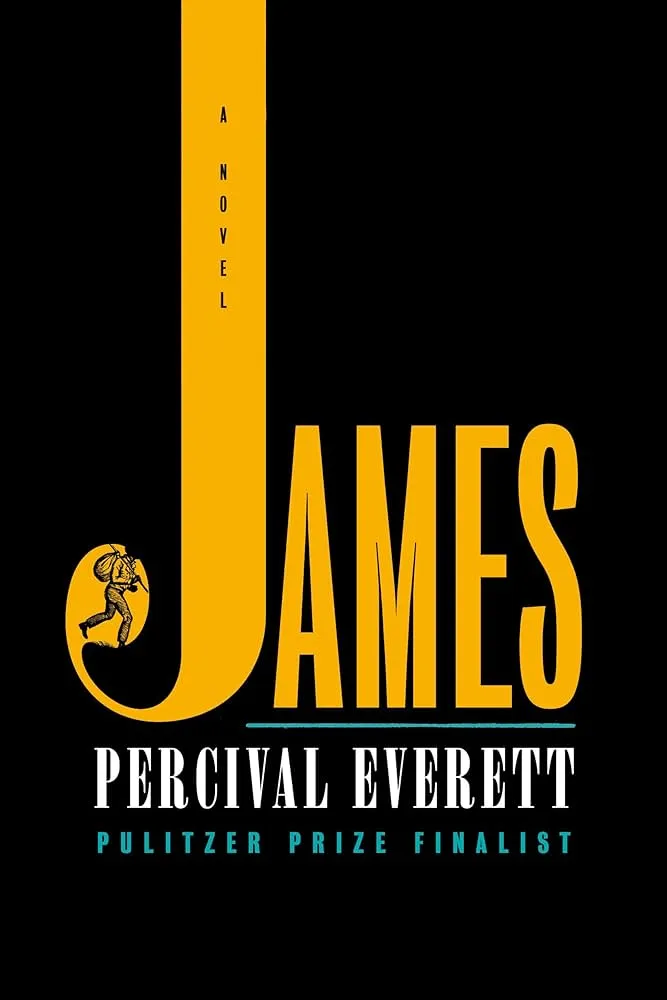
The Book That Swept the Literary Awards
Maybe it’s silly to choose a book that has been everywhere and is so over the radar, but I feel moved to add to the chorus of voices singing the praises of this instant classic by a literary great. I read Erasure not long ago—shortly after we got news of an adaptation in production and because I heard it was, at least partially, a scathing indictment of how publishers pigeonhole and lean into the trauma of Black stories. Erasure immediately turned me into a fan of Percival Everett’s writing, so I was more than ready to pick up his newest novel.

James by Percival Everett
You probably already know that James is a reimagining of that Mark Twain classic just about everyone is assigned in high school, Adventures of Huckleberry Finn. You probably already know that Everett’s version is told from the perspective of Jim, or James in this story, the enslaved Black man who journeys down the Mississippi River with Huck. Until a few weeks ago, I asserted that I had never read Twain’s original tale, but as I was considering writing about James, a memory arrived out of the blue. I was in my 10th grade English class and we were reading a book aloud when a now almost caricatured scene played out. A student stalled before a word that I saw coming as I read along. I remember the dread like a boulder in my stomach and my attempt to shrink down in my seat. It was the slur of slurs for Black people, and my teacher urged the student onward—”You can say it”—as if saying the word was a lesson in itself. In my honors English class, we were all a bunch of try-hards, so there was no giggling, but even the dense silence following that word, which seemed to echo long after it was spoken, felt like punishment made just for me, the lone Black kid in the classroom.
No wonder it took me so long to remember reading that book. No wonder James felt like a reclamation of autonomy deeper down than I expected. James isn’t a lesson for white people made flesh and bone, he’s not a childlike innocent rendered ignorant by his circumstances. He’s a wily and determined intellectual—he’s wise and he cares for Huck, but he’s no magical Negro. He is a shrewd analyst and critic of the state of the country, the antebellum South, and the people, both enemies and supposed allies, he meets.
I can only speak for my own reading experience and, to me, this book felt like it was written for every African American who grew up with the implicit message that the only stories about them worth telling were ones written by white people who knew better and were better positioned to speak for their people, and who were made to feel less like individuals and more like pedagogical tools.
What have you been reading lately? Let’s chat in the comments!
The comments section is moderated according to our community guidelines. Please check them out so we can maintain a safe and supportive community of readers!




Leave a comment
Become an All Access member to add comments